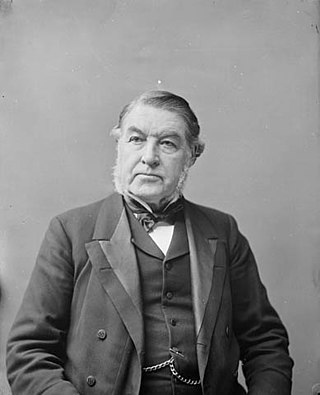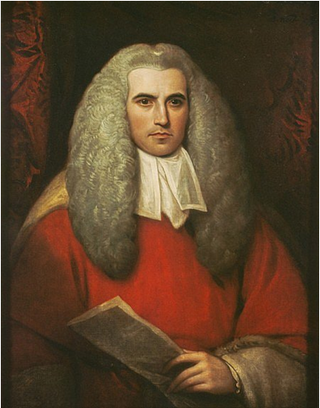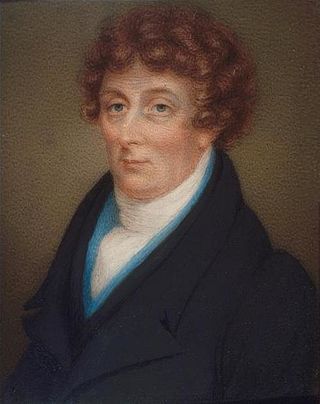Related Research Articles

Sir Charles Tupper, 1st Baronet,, M.D. was a Canadian Father of Confederation who served as the sixth prime minister of Canada from May 1 to July 8, 1896. As the premier of Nova Scotia from 1864 to 1867, he led Nova Scotia into Confederation. He briefly served as the Canadian prime minister, from seven days after parliament had been dissolved, until he resigned on July 8, 1896 following his party's loss in the 1896 Canadian federal election. He is the only medical doctor to have ever held the office of prime minister of Canada and his 68-day tenure as prime minister is the shortest in Canadian history.

Sir John Sparrow David Thompson was a Canadian lawyer, judge and politician who served as the fourth prime minister of Canada from 1892 until his death. He had previously been fifth premier of Nova Scotia for a brief period in 1882.

Events from the year 1896 in Canada.

Events from the year 1894 in Canada.

Events from the year 1823 in Canada.

Sir Charles Hibbert Tupper was a Canadian lawyer and politician.

The Nova Scotia Supreme Court is a superior court in the province of Nova Scotia.

The Court of Appeal for Nova Scotia is the highest appeal court in the province of Nova Scotia, Canada. There are currently 8 judicial seats including one assigned to the Chief Justice of Nova Scotia. At any given time there may be one or more additional justices who sit as supernumerary justices. The court sits in Halifax, which is the capital of Nova Scotia. Cases are heard by a panel of three judges. They publish approximately 80 cases each year.

Sir Joseph Andrew Chisholm was Mayor of Halifax and Chief Justice of the Supreme Court of Nova Scotia.
The Provincial Court of Nova Scotia is the court of criminal jurisdiction for the Canadian province of Nova Scotia. There are twenty-three Justices and one Chief Justice on the bench, who sit in one of 33 locations over the province.
Sir Charles James Townshend, was a Canadian judge and politician.
Sir Robert Hodgson was a Canadian lawyer, politician, judge, and the second Lieutenant Governor of Prince Edward Island.

Sir Thomas Andrew Lumisden Strange was a chief justice in Nova Scotia, known for waging "judicial war" to free Black Nova Scotian slaves from their owners. From 1789 to 1797, he was the sixth Chief Justice of Nova Scotia. He became the first Chief Justice of the erstwhile Supreme Court of Madras and in that capacity was also the first Chief Justice of the Madras Presidency, British India from 1801 to 1817.
The Nova Scotia order of precedence is a nominal and symbolic hierarchy of important positions within the province of Nova Scotia. It has no legal standing but is used to dictate ceremonial protocol at events of a provincial nature.

Sir Brenton Halliburton was the eighth Chief Justice of the Supreme Court of Nova Scotia.

Benjamin Russell was a Canadian lawyer, professor of law, judge, and politician in the province Nova Scotia.

Sir James Monk was Chief Justice of Lower Canada. Monk played a significant role in the abolition of slavery in British North America, when as Chief Justice he rendered a series of decisions regarding escaped slaves that 'while not technically abolishing slavery rendered it innocuous. The slave could not be compelled to serve longer than he would, and ... might leave his master at will.'

The North British Society was founded in Halifax, Nova Scotia in 1768, the oldest Scottish heritage society outside Great Britain. North British is an adjective used as an alternative to "Scottish".

This article is the Electoral history of Sir John Sparrow David Thompson, the fourth Prime Minister of Canada. A Conservative, he became prime minister upon the resignation of Prime Minister Sir John Abbott in 1892. Thompson served a short term of just over two years as prime minister (1892-1894), until he died suddenly in office and was succeeded by Sir Mackenzie Bowell. He never led his party in a general election.
Sir Wallace Nesbit Graham was a Canadian judge. He was Chief Justice of Nova Scotia from 1915 to 1917.